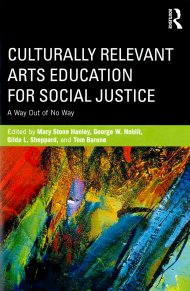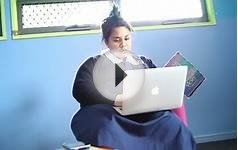 This book sits at the “progressive” end of the spectrum of thinking about the value of arts in American education. In the field of regional and national arts funding, specialists in arts education are involved with new research assessing the value and benefits of arts training in the development of our youth populations in America. No doubt this book will contribute greatly to a field of education that is struggling to address the tremendous demographic shifts of the US public school population. The disadvantages experienced by the many new immigrant and non-English-speaking children are compounded when schools provide little or no arts training as a means to nurture creativity, free expression, identity development, and articulation skills. As the editors say, “truth seeking and truth making” are the two goals of Culturally Relevant Arts Education for Social Justice.
This book sits at the “progressive” end of the spectrum of thinking about the value of arts in American education. In the field of regional and national arts funding, specialists in arts education are involved with new research assessing the value and benefits of arts training in the development of our youth populations in America. No doubt this book will contribute greatly to a field of education that is struggling to address the tremendous demographic shifts of the US public school population. The disadvantages experienced by the many new immigrant and non-English-speaking children are compounded when schools provide little or no arts training as a means to nurture creativity, free expression, identity development, and articulation skills. As the editors say, “truth seeking and truth making” are the two goals of Culturally Relevant Arts Education for Social Justice.
The anthology’s structure and contents are amazing, given what most think is a paucity of research and scholarship in the field of arts and social justice in education. The fact that the editors received 236 proposals in response to their call for articles bodes well. The editors could choose only twenty or so contributions, but clearly scholars are beginning to write and publish with a focus on this subject. This book will serve as the first step in highlighting the growth in this area.
The book’s major strengths and distinctive features are the new and refreshing materials the editors are introducing to the field of arts in education. In this effort, the unique phrases and strengths of the writing of editor Gilda L. Sheppard stand out. It is rare that a book brings together the progressive perspectives of African American and other scholars of color, who have researched and presented meaningful examples of arts and social justice that benefit average schoolchildren. This book offers a point of view that is essential for the beleaguered teaching community.






